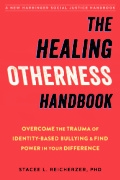Have you ever been so nervous in an interview that you were actually numb while listening to yourself speak, or froze up, unable to conjure answers to the questions? Maybe you became so anxious that you talked yourself out of the interview all together. You’re not alone. In fact, job interviews probably rank close to car trouble on things we enjoy the least. Unless we’re independently wealthy or self-employed, however, they’re part of what we must go through in order to secure gainful employment. To help you capitalize on your skills and create opportunities for yourself, here’s a list of Dos and Don’ts to help you in preparing for the behavior-based job interview.
First off, let’s clarify. What is a behavior-based interview, exactly? Generally, the search committee will gather information through a series of scenario-based questions and ask you to explain how you’d handle them. This essentially paints the picture of your skill set, demonstrated through the actions you’ve taken in the past or would take on the new job. Even if you find that the committee’s interviewing isn’t behavior-based, and is of the more traditional, “Tell us about your strengths,” “Why our company?” sorts of questions, preparing to discuss your specific job experiences will give you a leg up over the competition.
With that in mind:
Do approach an interview as an opportunity to tell the story of your job skills. Before you go, consider what you’ve done and the lessons you learned about how to do or not do something. Writing this material out will help you recall it on interview day. Think of aspects of your work experience that may be unique. It’s a great interview when the hiring committee starts asking you frank advice for solving issues they’re facing.
Don’t show up for an interview expecting that information will come to you if you didn’t map your skills ahead of time. Unless you’ve given time really thinking about the work you’ve done and its merit, you may struggle. Also, mapping your work builds confidence because it’s a reaffirmation that indeed, you have a lot of skills that will be useful.
Do listen to the questions/prompts and answer them fully. A question that begins, “Tell us about a time when you needed to make a decision that you knew would be unpopular with your team. How did you message it? What was the outcome?” is a 3-part question that’s aimed to identify how you manage supporting people through changes. You’ll want to be specific and sufficiently detailed, and if you forget part of the question that was originally asked, ask for it to be repeated.
Don’t, when given questions like this, give abstract responses that are vague in nature such as, “Well, I like to bring people in and tell them why we’re doing what we’re doing, then give them a chance to ask questions.” This sounds canned, and without an example, it fails to demonstrate that you really have the skills to manage this type of scenario.
Do give concise answers that are specific to the question that’s asked. If you know you could continue with an answer but are uncertain whether additional detail is needed, it’s okay to ask, “Does that answer your question?” This places the responsibility with the interviewer if she or he wants you to expound on what you’ve said.
Don’t ramble. Interviews are killed if your answers are circuitous because the hiring committee will think that this is how you actually think and speak in your work world. Nobody wants to work with a rambler who can’t give clear and direct responses.
Do ask the frank, real-world questions you have. An interview is really a two-way conversation to be sure that you fit with them and they fit with you.
Don’t be timid about asking questions because you obviously want to know what a day of a life in this job will look like, how people find balance, how certain things get done, or whatever else is of interest to you.
Do, after the interview is over and the offer is being made, advocate for your salary and other things you need. This is especially necessary for managerial jobs because it shows that you have negotiation skills. Don’t be outrageous. Know the median salary that’s offered for this position in your area and consider your time and experience that’s been spent preparing you for it.
Don’t accept an initial offer that seems low. Companies generally make offers with the expectation that you’ll negotiate and will make an initial lowball offer. If you can earn an extra 5-10% of what they initially offered, or perhaps additional vacation, relocation expenses, or other needs, do it.
Remember that learning to interview well is a practiced skill set unto itself. Those of us who have made few job changes are often challenged by the experience. Nonetheless, if you follow these tips, you’ll get better each time you interview, eventually landing the plum job.

